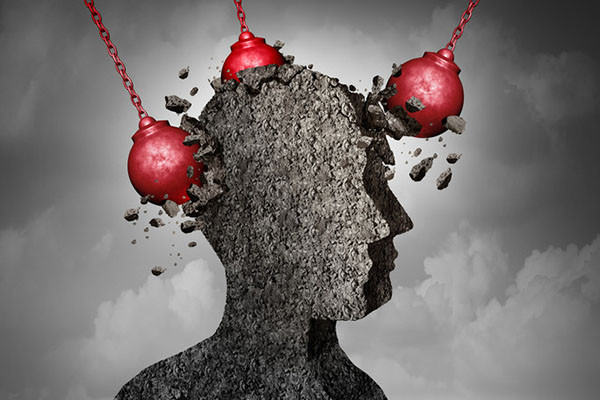5 unusual types of headaches
- Reviewed by Howard E. LeWine, MD, Chief Medical Editor, Harvard Health Publishing; Editorial Advisory Board Member, Harvard Health Publishing

Headaches come in lots of varieties, and some are easily recognizable. In most cases, headaches are little more than short-term nuisances that go away with an over-the-counter pain reliever, food, caffeine, or rest. Some headaches, however. cause more severe symptoms and require a doctor's care. Others may be completely unfamiliar to you.
Common types of headaches
Most headaches fall into four main types: migraine, tension, cluster, and sinus.
- A migraine classically causes throbbing, pounding pain that lasts for hours — sometimes even days — on one side of the head.
- A tension headache usually feels like a tight band squeezing around your noggin.
- A cluster headache is an uncommon condition. The pain strikes one side of the head, starting abruptly and lasting for about 30 minutes to three hours. As the name suggests, these headaches will recur in clusters, sometimes during the same day or daily over a few weeks.
- And a sinus headache shows up as pressure on one side of the face, behind the nose, or above one eye when you have a sinus infection.
Unusual types of headaches
Some headaches, however, aren't as well-known. When less familiar headache pain strikes, the symptoms or patterns may be puzzling, or even frightening. Here are five other unusual headaches that you should know:
- Orgasmic headache. Some people experience the sudden onset of a severe head pain similar to that of a thunderclap headache just before or at the time of sexual orgasm. Although usually no underlying problem is found, it should prompt a call to your doctor to be sure.
- Ice-pick headache. The vivid image of this headache identifies its main characteristic: sudden, brief, and severe stabs of pain to the head. Ice-pick headaches are so fleeting that they're over long before any medication could take effect. This type of headache generally affects people who already suffer from migraines or cluster headaches.
- New daily persistent headache. Doctors call this headache "new" because it develops in a person who has not had problems with headaches before. The onset is sudden enough that you'll often remember exactly when it began. It is "daily" and "persistent" because it then lingers indefinitely, and can mimic either a migraine or tension headache.
- Paroxysmal hemicrania. Like cluster headaches, paroxysmal hemicranias last for a while. But the periods are shorter (10 to 30 minutes) and more frequent (five to 15 times per day). The condition is considered different from cluster headache, as each headache type responds differently to various medications.
- Weekend headache. These are often caused by caffeine withdrawal, which leads to the dilation of blood vessels. This type of headache often begins 12 to 24 hours after your last sip of coffee and is likely to develop on weekends, when you delay your first cup of the day or skip coffee entirely. You can easily identify this type of headache by comparing your weekend caffeine intake with your weekday consumption.
What you should do about sudden or intense headaches
Take note of your symptoms when a headache occurs. If it's sudden and intense, like a thunderclap headache (also called "the worst headache of your life"), it could signal bleeding inside the head. Seek emergency medical attention.
If a headache is less severe, an over-the-counter pain reliever like ibuprofen (Advil, Motrin) or acetaminophen (Tylenol) may be enough to ease your pain.
But if headaches recur or you need to take pain relievers frequently, talk to your doctor. You may not be familiar with the particular pattern of pain, but your doctor likely will be, or can refer you to a headache specialist.
About the Author

Heidi Godman, Managing Director
About the Reviewer

Howard E. LeWine, MD, Chief Medical Editor, Harvard Health Publishing; Editorial Advisory Board Member, Harvard Health Publishing
Disclaimer:
As a service to our readers, Harvard Health Publishing provides access to our library of archived content. Please note the date of last review or update on all articles.
No content on this site, regardless of date, should ever be used as a substitute for direct medical advice from your doctor or other qualified clinician.















